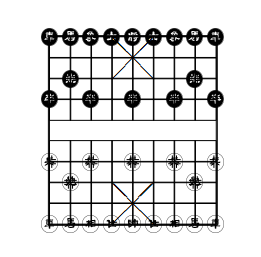What’s the distance between inside, and within — and politics?
Sunday, January 7th, 2018[ by Charles Cameron — eerie distances between thus and so, this and that — and Trump, Wolff ]
.
Speaking practically: switching between the delicate details of the North Korean situation, and those of the Iranian situation, each of which involves a potential nuclear adversary and some deterrent balance, and each of which contains the other as a subset — what’s the mental distance between those two mindsets? How fast can a sharp mind switch betweeen them. Or, for that matter, between foreign affairs and domestic politics? Or between dealing with House and Senate? Or between treating with Democrat and Republican?
Is there a zoom at work here, between these difficult distances?
**
I’d been wondering recently about some mental distances that illustrate the difference betweeen qualitative and quantitative realms, subjective and objective realities..
I’ve been asking myself, what’s the distance between inside and within, between x-ray and insight, or sky and heaven?
Wm Blake, Newton (left); Angel (right).
And what scale should we use to peer into such questions? — the compass Blake’s Newton uses to parcel out earth is purely terrestrial, purely rational, and Blake’s own blazing angels would have no place in it. Should we perhaps use Taleb‘s Wittgenstein‘s ruler?
Unless you have confidence in the ruler’s reliability, if you use a ruler to measure a table you may also be using the table to measure the ruler.
Here, the distance between the measurer and the measured is itself in flux.
**
Back to politics.
How do those whose entire lives have been concerned with the largely substantial, ascertainable or verifiable facts of focus groups, polls, votes, election results, majorities, minorities, policies and so forth — with no time for Rilke‘s “angels’ hierarchies” — function when weighing the “mental stability” or “very stable genius” of a President with that same President’s policy with regard to — gasp — Kim Jong-Un?
Who has his own issues of “very stable genius” or “mental stability”?
And who doesn’t even have a semi-reliable chronicler like Wolff to illuminate the swathe he is cutting through ideology, dogma, doctrine, advisors, generals, and.. Juche?
How many minds do we have among the generals, among the punditry, who can roam at all scales of the relevant realms, psychological and political, blatant and nuanced, knowable and profoundly unknown?






